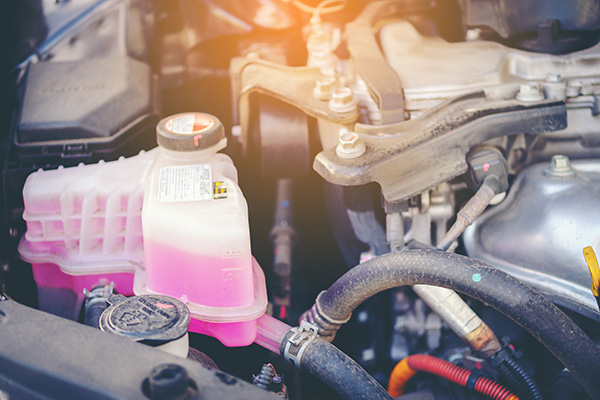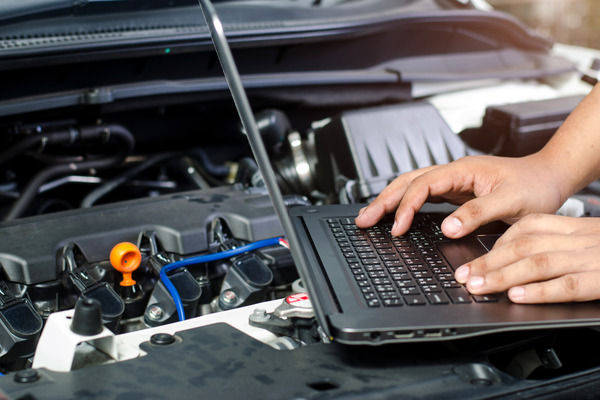Posted on 6/27/2024

Ever wondered why your technician emphasizes the importance of a fluid exchange service during your routine car maintenance? While it might seem like just another item on the list, fluid exchange is crucial for keeping your vehicle running efficiently. But what exactly is a fluid exchange service, and why does your car need it? The Fluid Exchange Service A fluid exchange service involves draining and replacing the various fluids that keep your car's systems operating effectively. These fluids include engine oil, transmission fluid, brake fluid, coolant, and power steering fluid. Each fluid plays a critical role in your vehicle's performance, ensuring everything from smooth gear shifts to efficient cooling and braking. Why Is Fluid Exchange Important? Regular fluid exchange is vital for several reasons. Over time, the fluids in your car can break down, become contaminated with debris, or lose their effectiveness. This can lead to decreased p ... read more
Posted on 5/28/2024

BMW vehicles are renowned for their exceptional performance and driving experience. Proper maintenance is essential to ensure your BMW continues to deliver optimal performance and reliability. In this comprehensive guide, we'll explore the best practices for maintaining your BMW's performance and keeping it running at its best for years to come. Regular Fluid Checks and Changes Fluids play a critical role in your BMW's performance and longevity. According to the manufacturer's recommendations, regularly check and change engine oil, transmission fluid, coolant, and brake fluid. Fresh fluids help lubricate vital components, dissipate heat, and maintain optimal performance. Scheduled Maintenance Inspections BMW vehicles adhere to a strict maintenance schedule outlined by the manufacturer. Schedule regular maintenance inspections ensure all c ... read more
Posted on 4/27/2024

Mercedes-Benz is a brand associated with luxury and performance, redefined by AMG and Brabus. These renowned tuning companies have taken Mercedes-Benz cars to new heights, pushing boundaries and setting benchmarks in the world of high-performance vehicles. What is AMG? Mercedes-AMG, commonly referred to as AMG, is the high-performance division of Mercedes-Benz. Founded in 1967 by former Mercedes engineers Hans Werner Aufrecht and Erhard Melcher, AMG has become synonymous with power, precision, and performance. Specializing in engine tuning, aerodynamics, and handling enhancements, AMG transforms Mercedes-Benz cars into thrilling driving machines. Mercedes-AMG takes the already impressive Mercedes-Benz models and elevates them to new heights by fitting custom handcrafted engines and implementing various performance upgrades. From handcrafted engines meticulously assembled by expert technicians to precision-tuned exhaust systems that emit an exhilarating roar, AMG lea ... read more
Posted on 3/31/2024
.jpeg)
Have you ever wondered what could trigger your car's check engine light besides the usual suspects, like a faulty oxygen sensor or loose gas cap? Prepare to be surprised as we go into the realm of the bizarre and uncover three uncommon and downright strange reasons behind a lit check engine light. From unexpected critter encounters to mystical malfunctions, the mysteries of the check engine light are about to be unveiled. Rodent Infestation Discovering a mischievous rodent as the culprit behind the illuminated check engine light can be perplexing. In some cases, small critters like mice or squirrels may take refuge in your car's engine compartment, seeking warmth and shelter. Unfortunately, their penchant for chewing on wires and hoses can lead to electrical shorts or vacuum leaks, triggering the check engine light. It's a bizarre scenario, but one that's more common than you might think, especially for vehicles parked in rural or wooded areas ... read more
Posted on 2/28/2024

Ever been driving when suddenly a mysterious light pops up on your dashboard? Don't panic – it might just be your car's way of telling you something. Understanding error codes can help demystify these signals and keep you confident on the road. That's why we will be sharing everything you need to know about them, so keep reading to learn more! How Do Error Codes Work and Why Are They Important Error codes are the way your car communicates potential issues to you. They are generated by the OBD-II system, a standardized protocol installed in most modern vehicles to monitor the performance and emissions systems. When a problem is detected, sensors throughout the vehicle trigger the OBD-II system to generate a specific error code, which is then stored in the car's computer memory. These codes provide valuable diagnostic information to mechanics and technicians, enabling them to pinpoint the root cause of a problem quickly and accurately. By accessing the error code ... read more